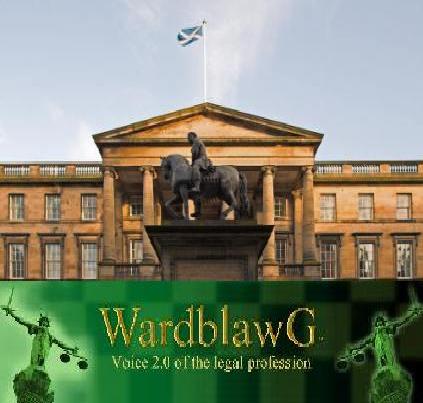
Received an email recently from John Tredennick, CEO & Founder of Merlin Search Technologies, Inc and thought I’d share with readers,

By Malcolm Trotter, global education and training professional In the pursuit of career ambitions, investing in oneself and securing credible

While our mission is to be one of the world’s leading resources on law, digital and legal technology, helping the
Product liability attorneys play a crucial role in securing the compensation you deserve. Imagine this: you’ve just purchased a new
Finding yourself in a car accident can be a harrowing experience. In the midst of dealing with injuries, insurance claims,

By Amanda Hamilton, Patron of the National Association of Licensed Paralegals (NALP) Paralegals play a vital role in law firms,
Designing and creating the perfect website for your business isn’t where the hard work ends. Whilst you’ve got to make
Creative argument is essential if you’re going to get a first. Perhaps only unless your tutor or professor doesn’t know the topic well can you get away rehashing old argument and ideas that have been discussed thousands of times before.
Each year across the world, each university demands that its students submit essays and dissertations electronically. But very little of that work is published online for the world to read. If it was so published, the knowledge contained within would be shared with billions of people around the planet. It follows that students would gain greater incentive to make their work of better quality. So, why not publish worldwide? Below are outlined the current trends towards emphasis on virtual learning and information dissemination through social media, followed by suggested reasons for universities not publishing students’ work more for free, concluding with a recommended course of action for all universities throughout the world to consider.

Epilogue So concludes the first ten chapters of this piece How to Dominate the Internet. If you have any comments

Once you have fortified your brand with various turrets of IP protection, you may wish to commercialise it. Commercialisation can take many forms, the most common of which are selling outright through either share or asset purchase, licensing and franchising, together with many other different species of commercial agreement.

So that’s a brief introductory guide to protecting your IP online. To learn more about IP law and IP protection, I would recommend strongly that you visit WardblawG’s friends at the award winning IP blog, the IPKat, founded and managed by Professor Jeremy Phillips. Subscription to Jeremy’s Google groups will provide your inbox with a flurry of IP related email gems every day plus pictures of one or two cats in peculiar poses. WardblawG’s Gavin Ward’s cat or, as Jeremy puts it, owner Missy has already made one appearance on Wednesday Whimsies.

The approach taken in Navitaire was reaffirmed in the recent decision in Nova v Mazooma Games, where it was similarly held that the reproduction of the look and feel of an existing program in original source code did not infringe copyright in the original program. However, both Navitaire and Nova concern programs with high levels of abstraction and may be limited to their facts. It is therefore entirely possible that the “look and feel” of a program in a future case may be protected if there are less abstract concepts and closer similarities between programs. Thus, we may not have seen the end of “look and feel” protection through copyright.

WardblawG has 30,000 very meaningful hits to its name, although 1000 of which have probably been made by me, my family and friends. Thank you to everyone who has viewed, subscribed and commented. As promised, today’s post is Chapter 7 of 10: Business Method Patents. Chapters 8, 9 and 10 shall follow, with Part 10 being published on my first day as a qualified solicitor in Scotland.

Once you can sleep at night knowing you have ownership rights, you can decide whether to leave them unregistered or proceed to register them. Unregistered design rights overlap with copyright to an extent and the protection afforded is decent to say the least. Go for registered designs if the design is more complex and vital to your business. If you don’t have the time or the cash for registered designs, just take the cheap practical option of sealing your design in an envelope and mailing them back to yourself through recorded delivery.

WardblawG uses one of the most common types of Creative Commons. See the CCL summary page and the full licence for more information. There are other different types of Creative Commons that may be considered.
By saying you grant a certain type of Creative Commons Licence, you are doing just that: no fancy legal documents required, because they’ve already been drafted for you. In case you haven’t discovered by now, WardblawG is a massive fan of freeing up information and keeping it simple. Welcome to FOI 2.0?

Next, you might need to pull your hair out over getting copyright protection for your written work. But wait a minute, no you don’t! Copyright is granted to you automatically by the nice people that drafted and agreed the international copyright treaties. Such copyright protection exists for anything you write, generally provided that it is your own material. To avoid plagiarism and copyright breach for using other people’s work, consider referencing them or getting consent from them first: it’s just like being back at university writing thousands of words that nobody will ever read; unless YoublawG them.
As Forest Gump might say, that’s all WardblawG has to say about that.
A branch of copyright and particularly relevant for web 2.0, Creative Commons Licences are the subject of Chapter 5 of this series, which follows this post.

If you take one thing away from this, it should be this practical but general word of advice:
If your business and its model are analogous to another successful and well-protected business and if your brand name is unique, not in the dictionary, not an industry word and not confusingly similar to another business, then take inspiration from the trade mark applications of that other successful business, but do consider every application on its own merits; and
If you are in any doubt about trade mark registrability, research further or seek professional advice from a lawyer, brand protector or trade mark agent. In WardblawG’s experience, trade mark agents are most useful when registrability of your brand as a trade mark is clearly problematic, when you need to overcome objections or field queries from an examiner, or when you have a large portfolio of trade marks to register and maintain.

The second step I would suggest is creating at least one domain name, ideally a .com registration reflecting verbatim your brand name. Do this through a reputable host of which there are many.

Intellectual Property (“IP”) As every business knows or should know, you must develop and protect your IP. For various reasons,